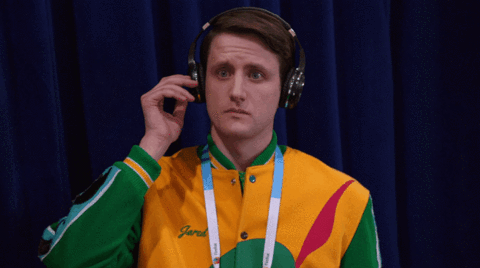How music shapes our daydreams
Plus, the power of hugging it out.
“When others see somebody who is profoundly involved in politics, it might send the message that to be at all engaged, that is how you should behave.” —political scientist Yanna Krupnikov
BRAIN WAVES
It was all a dream. Daydreams can be enjoyable, but when daydreaming becomes excessive and gets in the way of everyday life, psychologists refer to it as maladaptive. A recent study looked at the role of music in this type of daydreaming. “For some with maladaptive daydreaming, music is an unavoidable trigger that compromises their sense of control or agency over when they slide into excessive, interfering daydreaming,” said Eli Somer, the psychologist who coined the term. “This suggests a concerning addictive or dependent relationship.” Somer interviewed 41 volunteers who scored high on something called the “Maladaptive Daydreaming Scale.” Those people were asked to describe their experiences with music while daydreaming and compare it to daydreaming without music. Overall, the responses suggested that music significantly influenced the emotional intensity of their daydreams. “Just as a film score invisibly shapes emotions, themes, and storytelling, I was surprised to learn that music in maladaptive daydreaming evokes emotions and becomes integral to the overall emotional journey of the fantasy,” Somer said. Read more about the research here.
Hug it out. Not all of us are huggers. But for some, hugging has a positive effect on mental health. In a new study, researchers looked at people’s hugging habits and collected saliva samples to measure their stress hormones. People who reported more frequent hugs showed a significantly lower “cortisol awakening response” the next morning. In other words, the huggers seemed to have reduced stress hormone levels. The researchers suggested that hugging may communicate to our bodies that we’re safe, which can then reduce stress. “Affectionate touch may act as a safety signal that is considered when anticipating stress for the next day,” the study concluded.
Thanks for the memories. I think. We rely on our memory to understand the world. But what if our memories aren't true? Listen to learn more.
ON THE HIDDEN BRAIN PODCAST
US 2.0: Not at the Dinner Table: We typically divide the country into two distinct groups: Democrats and Republicans. But what if the real political divide in our country isn’t between “left” and “right”? What if it’s between those who care intensely about politics, and those who don’t? This week, we bring you a favorite 2020 conversation with political scientist Yanna Krupnikov, who offers an alternative way to understand Americans’ political views.
ON THE MY UNSUNG HERO PODCAST
Mas Masumoto’’s Story: A worker at a funeral home makes a special effort to locate the family members of an ailing woman, and unwittingly uncovers a family secret that goes back decades.
Don’t forget to send us the story of your unsung hero! Record a voice memo on your phone and email it to myunsunghero@hiddenbrain.org.
ON HIDDEN BRAIN+
Your Questions Answered: Adam Grant on Potential: You’ve got potential – how do you live up to it? On our exclusive subscriber-only feed, psychologist Adam Grant answers listener questions about how to unlock your strengths and make the most of your weaknesses.
MIND GAMES
What can you hold in your left hand but not in your right?
LAST WEEK’S PUZZLE
If there are 3 apples and you take away 2, how many do you have?
Answer: Two! You just took them away.
IN CASE YOU MISSED IT
Hidden Brain is a game! Do you struggle to recognize people after you've met them? Do you like games and puzzles? If so, you should try Hidden Brain Daily Challenge, our new app available on Apple iOS! It features our very first game, designed to help improve your facial recognition skills. Check it out here.
A MOMENT OF JOY
A poem: Lines Written in Early Spring
Have an idea for Hidden Brain? A story you want to share with us? Send an email to ideas@hiddenbrain.org. Listen to us on Spotify, Apple, Amazon Music or your favorite podcast platform.




